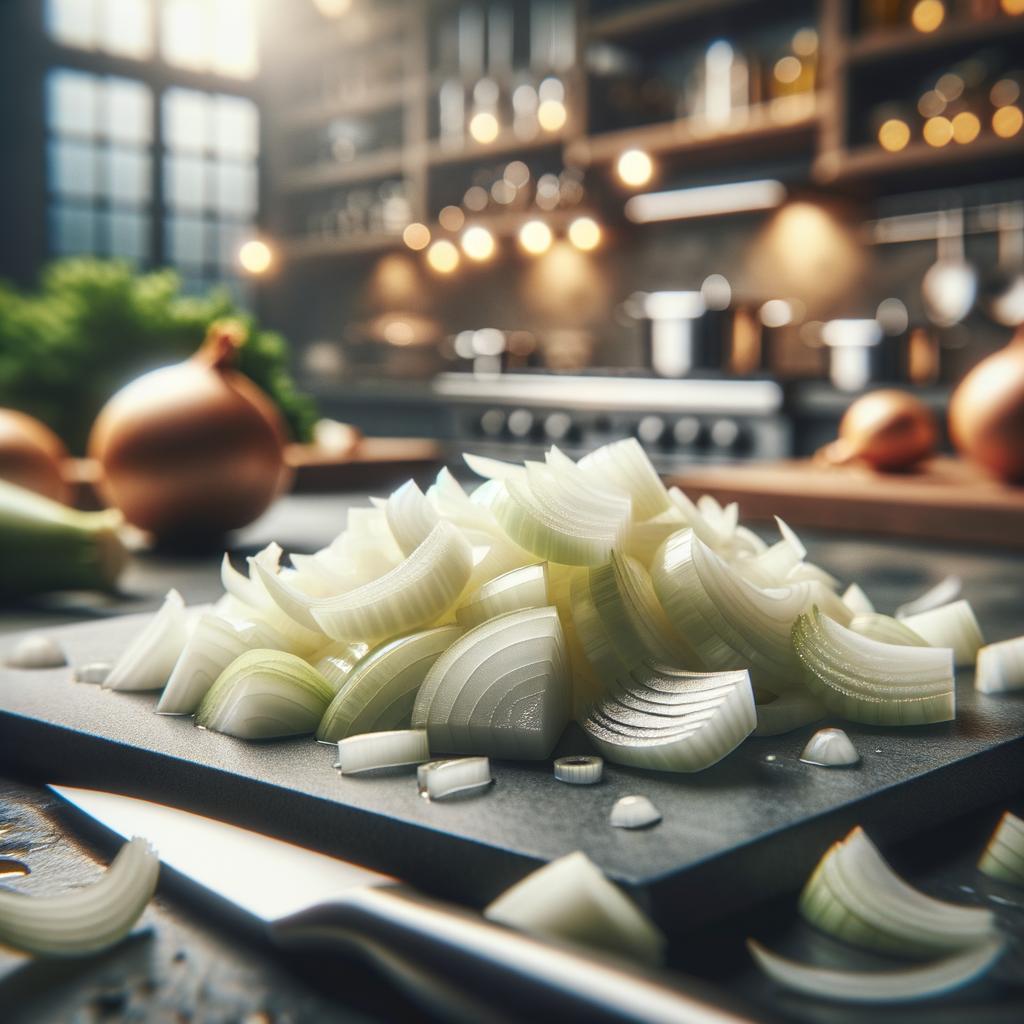Chopped Onions

Description
Chopped onions, a humble yet indispensable ingredient in culinary arts, are the unsung heroes of the kitchen. Their appearance is simple yet varies greatly depending on the type of onion - white, yellow, or red. They can be fine diced to a near translucent state or roughly chopped, exposing their multi-layered structure. Their texture is crisp and juicy, releasing a potent, pungent aroma when sliced. The flavor profile of a chopped onion is a complex symphony of sweet, sharp, and savory notes, with an underlying pungency that can bring tears to your eyes. What sets onions apart from similar ingredients is their transformative ability; they can mellow and sweeten with cooking, offering a depth of flavor that forms the backbone of many dishes.
Primary Uses
Chopped onions are used extensively across global cuisines. They form the base of countless dishes, from the comforting French onion soup to the robust Indian curry, the zesty Mexican salsa to the hearty Italian Bolognese sauce. They're also used raw in salads, sandwiches, and toppings, providing a crunchy texture and a sharp bite. Beyond culinary uses, onions have been used for their medicinal properties since ancient times, believed to aid digestion, fight infections, and reduce inflammation.
History
The history of onions goes back thousands of years with traces found in Bronze Age settlements, indicating their culinary and therapeutic significance. Ancient Egyptians revered onions, believing their concentric circles symbolized eternal life. Onions were even used as currency to pay laborers building the pyramids. In the Middle Ages, onions were such a staple that they were used as rent payment and wedding gifts. Over time, their popularity has only grown, and today, onions are a cornerstone ingredient in kitchens worldwide. Folklore often associates onions with protection and strength, and they are featured in many folktales and myths.
Nutritional Information
Nutritionally, onions are a powerhouse. They are low in calories yet high in vitamins and minerals, including vitamin C, B vitamins, potassium, and folate. They are rich in antioxidants, particularly quercetin, which is linked to lower blood pressure and improved heart health. The sulfur compounds in onions have been shown to have anti-cancer properties. They also contain prebiotic fibers that help in maintaining a healthy gut. Compared to similar ingredients like garlic, onions have a lower concentration of allicin but offer a wider range of nutrients. Consuming onions may cause digestive discomfort for some, but generally, they are a nutritious addition to any diet.

